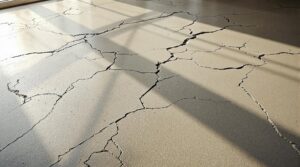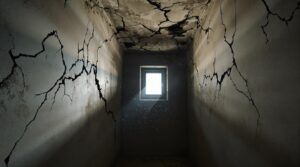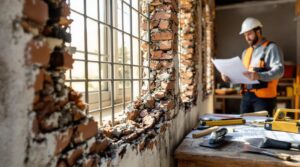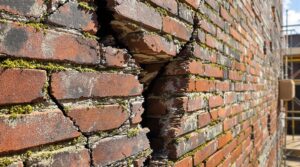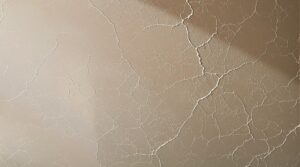Personal property insurance typically covers portable household appliances that are not permanently installed. Coverage extends to items like refrigerators, washing machines, and other plug-in appliances, protecting against perils such as fire, theft, and vandalism. Standard policies generally provide coverage ranging from 50% to 70% of dwelling coverage limits, though high-value appliances may require additional endorsements. Understanding the specific coverage details and limitations helps guarantee adequate protection for valuable household investments.
Key Takeaways
- Personal property insurance covers portable appliances like refrigerators and washing machines that can be unplugged and moved.
- Coverage typically ranges from 50-70% of dwelling coverage but excludes normal wear and tear damage.
- Built-in appliances such as furnaces and water heaters fall under dwelling coverage rather than personal property insurance.
- Protection includes damage from covered perils like fire and theft, but high-value appliances may require additional endorsements.
- Claims require thorough documentation including make, model, serial numbers, and photographs for successful processing.
Understanding Personal Property Coverage for Home Appliances
When homeowners and renters consider protecting their household investments, understanding personal property coverage for appliances becomes essential to maintaining financial security.
Personal property coverage within a homeowners insurance policy typically encompasses appliances that can be plugged into electrical outlets, such as refrigerators, ovens, and microwaves.
The distinction between covered appliances lies in their installation method. While portable appliances fall under personal property coverage, built-in appliances like furnaces and water heaters are protected under dwelling coverage.
Insurance policies provide financial protection when appliances sustain damage from covered perils, including fire, theft, and vandalism. For renters, personal property coverage can be particularly valuable, as it helps manage replacement costs for damaged appliances.
Given the variation in coverage limits and terms across different insurance policies, policyholders should carefully review their specific coverage details to guarantee adequate protection for their appliances.
This understanding helps prevent unexpected financial burdens when appliance damage occurs.
Types of Appliances Protected Under Personal Property Insurance
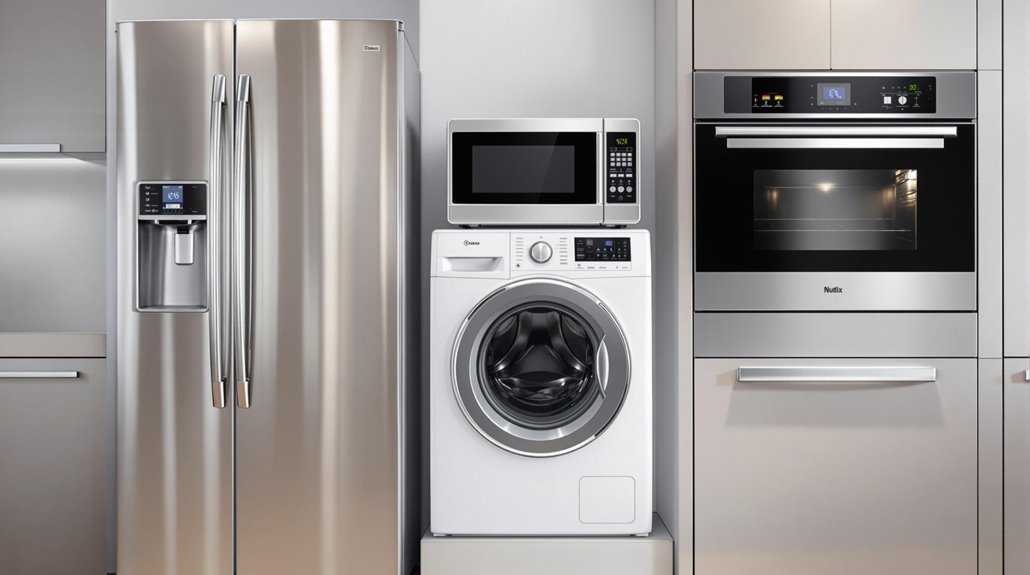
Personal property insurance provides extensive coverage for a wide range of household appliances that serve everyday needs. The coverage typically encompasses portable and plug-in appliances that are essential for daily living, subject to the specific terms outlined in the homeowners insurance policy.
| Appliance Type | Coverage Category | Typical Protection |
|---|---|---|
| Refrigerators | Personal Property | Fire, Theft, Vandalism |
| Washing Machines | Personal Property | Covered Perils |
| Microwaves | Personal Property | Damage, Theft |
| Built-in Units | Dwelling Coverage | Structural Protection |
Understanding coverage limits is vital when insuring appliances, as standard policies may have restrictions on high-value items. While personal property insurance offers protection against various perils, homeowners should carefully review their policy details to guarantee adequate coverage for their specific appliances. Some high-end or specialized appliances may require additional coverage options to fully protect against potential damage or loss.
Coverage Limits and Restrictions for Household Appliances
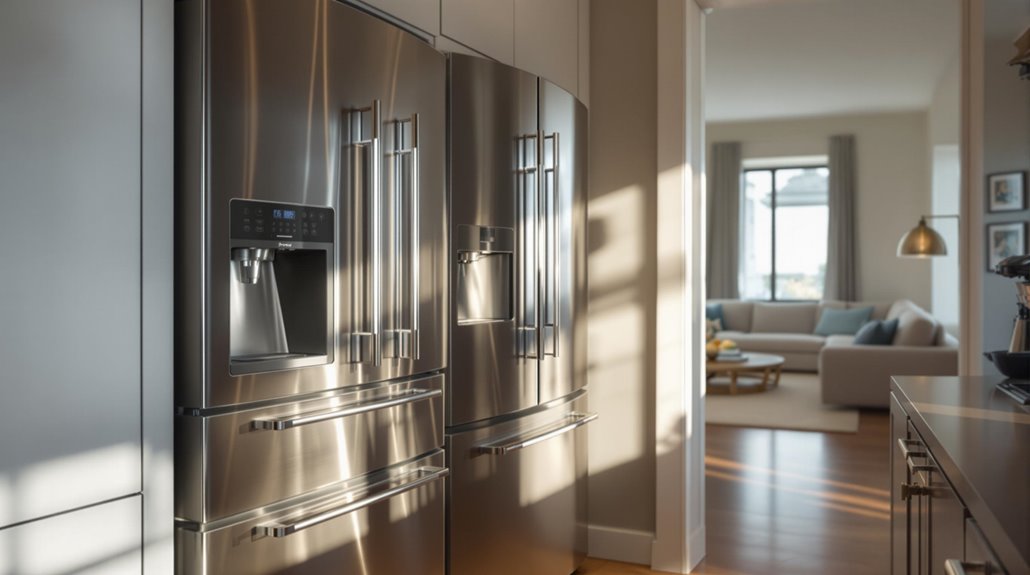
Understanding the limits and restrictions of personal property coverage for household appliances is essential for homeowners seeking thorough protection. Personal property coverage typically ranges from 50% to 70% of the dwelling coverage amount, with specific limitations applying to household appliances.
While standard policies cover damage from covered perils, they exclude normal wear and tear.
Key aspects of appliance coverage include:
- Non-built-in appliances fall under personal property coverage, while built-in units are protected by dwelling coverage
- Coverage is subject to overall personal property limits within the policy
- High-value items may require additional endorsements for full protection
- Protection applies to damage from covered perils like fire and theft
- Regular maintenance and wear-related issues are excluded from coverage
Homeowners should carefully review their policy details to guarantee adequate protection for their appliances, particularly when owning high-end or specialty equipment that may exceed standard coverage limits.
Common Perils Affecting Appliance Coverage
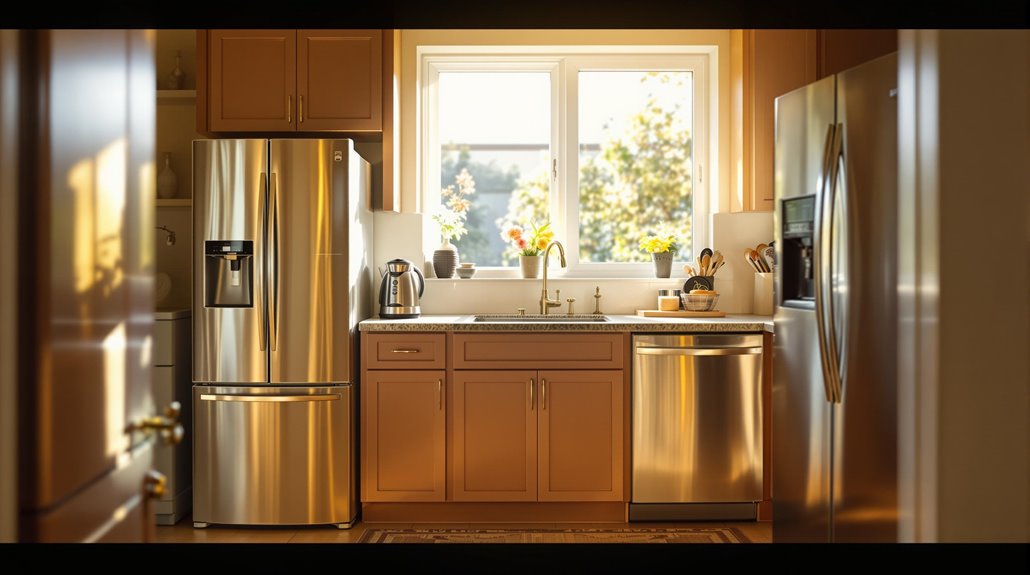
Insurance coverage for appliances depends heavily on the specific perils that cause damage to these household items. Personal property insurance typically protects appliances against several covered perils, including fire, theft, and vandalism.
Plug-in appliances like refrigerators and microwaves fall under personal property coverage, while built-in units may be classified under dwelling coverage.
However, certain types of damage are explicitly excluded from standard coverage. Mechanical breakdown and electrical failures are not typically covered unless the policyholder has added optional equipment breakdown coverage to their policy.
Similarly, flood damage to appliances requires separate flood insurance, as this peril is not included in standard personal property insurance. Understanding these distinctions is essential for homeowners to guarantee adequate protection for their appliances.
Coverage limits and specific terms vary by policy, making it important for policyholders to carefully review their insurance documentation to understand their exact coverage parameters.
Built-in Versus Standalone Appliance Coverage
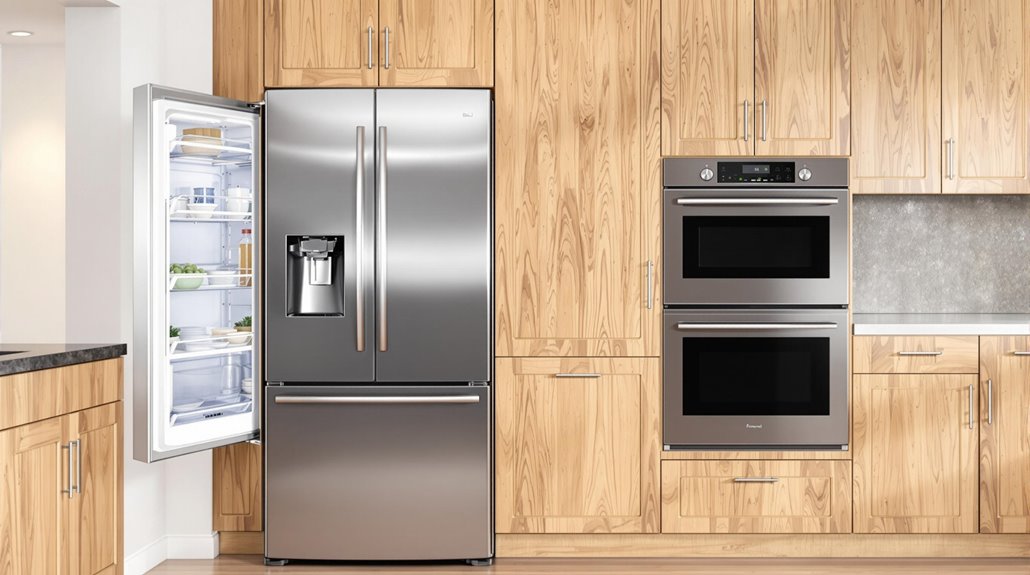
The classification of household appliances plays an essential role in determining their insurance coverage type. Under homeowners insurance, built-in appliances like furnaces and water heaters fall under dwelling coverage, while standalone appliances such as refrigerators are protected by personal property coverage. This distinction affects how claims are processed and what perils are covered.
Key differences between built-in and standalone appliance coverage include:
- Built-in appliances are considered part of the home's permanent structure.
- Standalone appliances can be moved and are treated as personal belongings.
- Personal property coverage extends to theft and vandalism for standalone units.
- Dwelling coverage focuses on damage from covered perils for built-in items.
- Equipment breakdown coverage may be needed for mechanical failures.
Understanding these coverage options is vital for homeowners to guarantee adequate protection.
Standard policies may not cover all types of damage, making it important to review coverage details and consider additional protection when necessary.
Special Endorsements for High-End Appliances
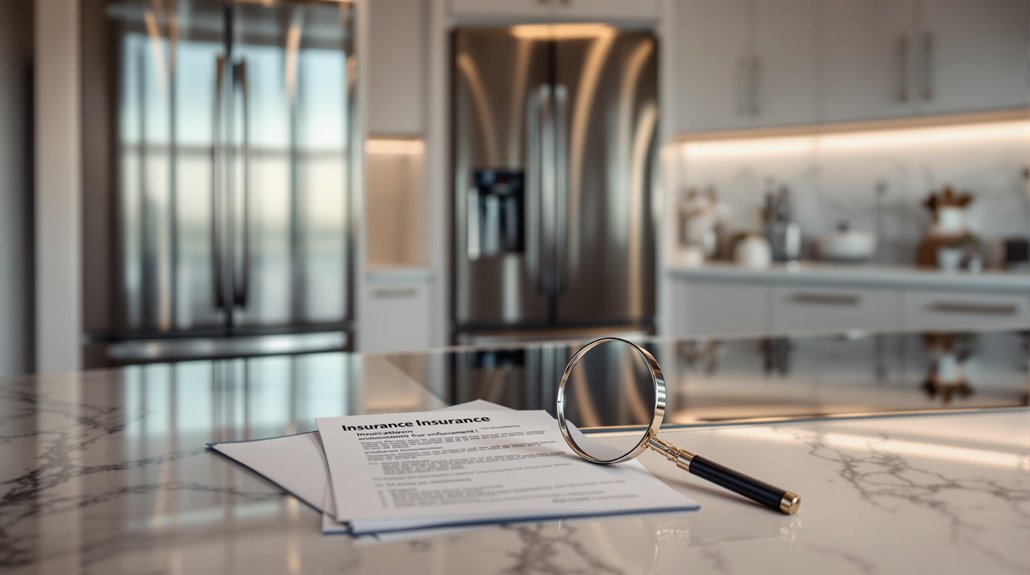
While standard personal property insurance provides basic coverage for household appliances, high-end appliances often require specialized endorsements to guarantee adequate protection for their full value.
These luxury coverage add-on options extend beyond typical policy limits through scheduled personal property endorsements, which allow homeowners to specifically list and insure valuable appliances at their appraised worth.
The expanded protection value limits offered through these endorsements can also include additional coverage for risks such as mechanical breakdown and accidental damage that may not be covered under standard policies.
Luxury Coverage Add-On Options
High-end appliances require specialized insurance coverage beyond standard personal property policies. Homeowners seeking protection for luxury appliances should consider adding scheduled personal property endorsements to their policy, which provide enhanced coverage limits for high-value items.
Equipment breakdown coverage offers additional protection against mechanical and electrical failures that standard policies typically exclude.
- Individual appraisals determine precise coverage amounts for each luxury appliance
- Scheduled personal property endorsements increase protection beyond standard sub-limits
- Regular policy reviews guarantee coverage stays current with appliance values
- Equipment breakdown coverage supplements protection against mechanical failures
- Extensive coverage requires documenting appliance conditions and specifications
These add-on options allow homeowners to customize their insurance protection based on their specific needs and the value of their luxury appliances, guaranteeing adequate coverage in case of loss or damage.
Expanded Protection Value Limits
Standard personal property insurance policies often impose restrictive sub-limits on appliance coverage, making special endorsements necessary for complete protection of high-value equipment.
Scheduled personal property endorsements enable homeowners to extend coverage limits beyond standard policy restrictions, particularly for high-value items like luxury appliances.
While basic policies typically cap reimbursement at around $1,500 for theft or accidental damage, specialized endorsements can substantially increase these limits to match the actual value of premium appliances.
To secure appropriate coverage, owners must obtain detailed appraisals for each high-end appliance, documenting their precise worth.
These item-by-item valuations guarantee that personal property insurance adequately protects expensive equipment against various risks, including theft and damage, by establishing accurate replacement values for coverage purposes.
Filing Claims for Damaged or Stolen Appliances
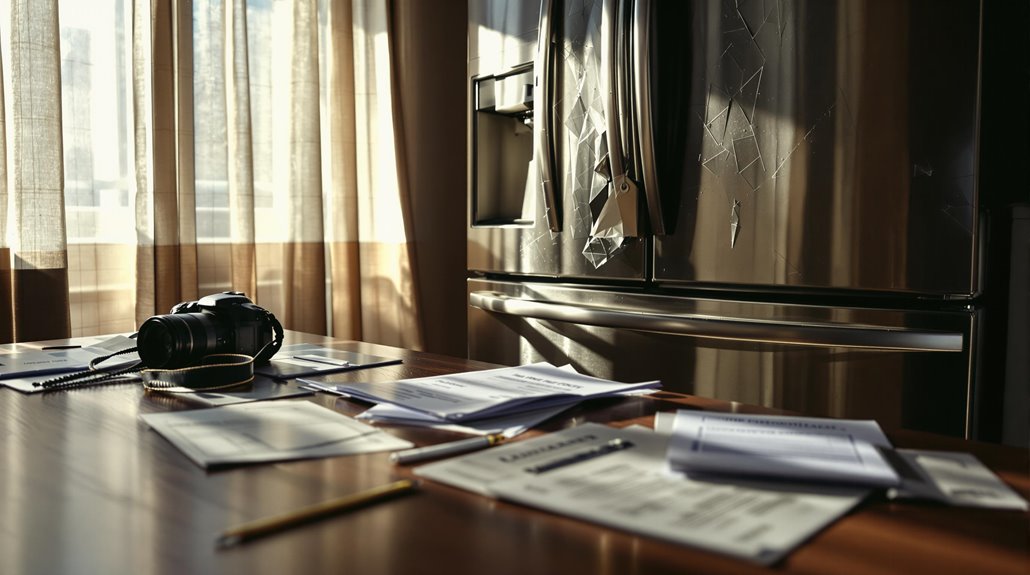
Filing an insurance claim for damaged or stolen appliances requires careful attention to documentation and timing to secure proper compensation. When submitting claims under personal property insurance, policyholders must promptly report incidents within the specified timeframe and provide thorough documentation to support their case.
Key elements for filing claims include:
- Documenting the appliance's make, model, and serial number
- Capturing detailed photographs of damage or evidence of theft
- Obtaining professional repair estimates or replacement quotes
- Gathering original purchase receipts and warranty information
- Reviewing policy coverage limits and applicable sub-limits
Insurance companies evaluate claims based on the provided documentation and policy terms. The reimbursement amount depends on whether the policy offers actual cash value or replacement cost coverage.
Understanding these distinctions helps policyholders navigate the claims process effectively and secures they receive appropriate compensation within their policy's coverage limits.
The Benefits Of Consulting A Public Adjuster
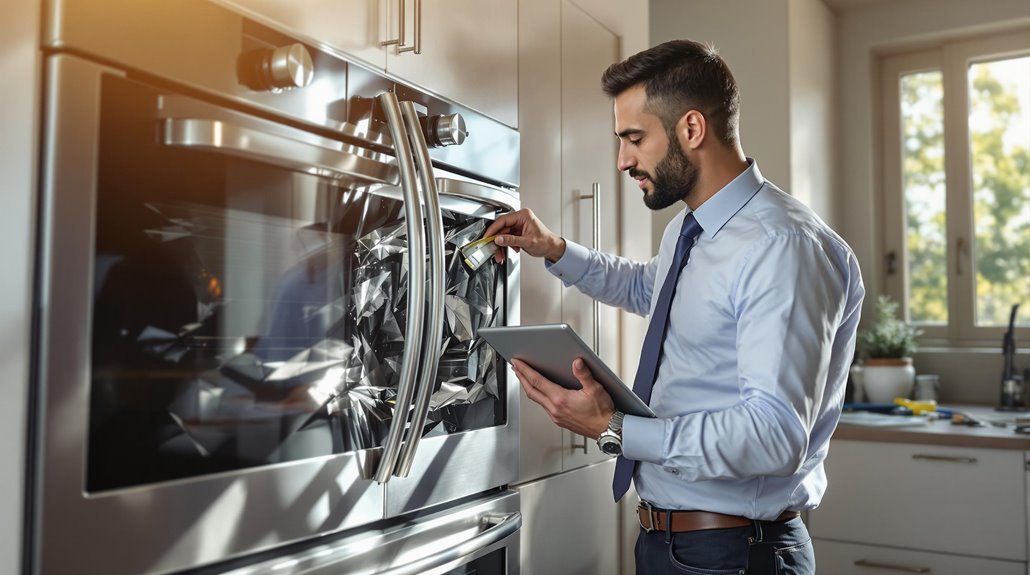
When dealing with insurance claims for damaged or stolen appliances, consulting a public adjuster can provide significant advantages through their specialized expertise and objective assessment capabilities.
Public adjusters streamline the claims process by professionally documenting damages, preparing thorough documentation, and skillfully negotiating with insurance companies on behalf of policyholders.
Studies have shown that claims handled by public adjusters often result in substantially higher settlements, with some cases seeing up to 800% greater payouts compared to claims filed without professional assistance.
Expertise In Insurance Claims
Steering through the complexities of personal property insurance claims for damaged or stolen appliances can overwhelm even the most diligent homeowner.
Public adjusters bring essential expertise to the claims process, offering professional guidance that greatly improves outcomes for policyholders seeking coverage for their appliances.
- In-depth knowledge of insurance policy interpretation and claim documentation requirements
- Professional assessment capabilities for accurately evaluating damaged appliances
- Strategic negotiation skills that often result in higher settlement amounts
- Extensive understanding of coverage limits and policy exclusions
- Expert documentation preparation that strengthens claim validity
These professionals work on a contingency basis, ensuring their interests align with maximizing the policyholder's claim settlement.
Their specialized knowledge streamlines the claims process while providing detailed documentation that supports higher payouts for damaged or stolen appliances.
Objective Damage Assessment
A thorough, unbiased assessment of appliance damage forms the cornerstone of successful insurance claims. Public adjusters provide professional expertise in evaluating personal property damage, ensuring that all aspects of appliance deterioration are properly documented and quantified.
These licensed professionals conduct extensive damage assessments that go beyond surface-level examination. They meticulously evaluate appliances, documenting both visible and hidden damage while considering factors that homeowners or standard insurance adjusters might overlook.
Their objective analysis helps identify the full scope of claim entitlements under existing insurance policies. By leveraging their knowledge of coverage options and policy provisions, public adjusters can substantiate higher claim values through detailed documentation and evidence.
This systematic approach to damage assessment typically results in more accurate valuations and fairer compensation for damaged appliances.
Streamlined Claim Process
By partnering with public adjusters, policyholders can greatly streamline their appliance damage claims process while maximizing potential settlements. These insurance professionals specialize in personal property claims and possess extensive knowledge of coverage terms specific to appliances and other household items.
- Public adjusters work on contingency, receiving payment only after successful claim resolution.
- They handle all communications with insurance companies, reducing policyholder stress.
- Experts provide thorough documentation and accurate damage assessments.
- Professional negotiation skills often lead to higher claim payouts.
- Industry experience helps navigate complex policy terms and requirements.
A public adjuster's expertise proves invaluable when managing appliance-related claims, ensuring detailed coverage evaluation and proper settlement amounts.
Their involvement typically results in more favorable outcomes while allowing homeowners to focus on recovery rather than complex claims procedures.
Higher Claim Payouts & Settlements
Most policyholders who engage public adjusters experience considerably higher claim settlements for damaged appliances and personal property. Studies indicate that settlements can increase by 20-40% when utilizing these professionals, who specialize in steering through complex insurance policies and identifying overlooked coverage opportunities.
| Benefits | Impact |
|---|---|
| Expert Negotiation | Higher settlement amounts |
| Damage Assessment | Identifies overlooked issues |
| Time Management | Handles claims process |
| Cost Structure | Contingency fee basis |
| Coverage Analysis | Maximizes policy benefits |
Public adjusters thoroughly evaluate personal belongings and advocate for the policyholder's interests throughout the claims process. Their expertise in documentation, valuation, and negotiation often results in more extensive settlements. Working on contingency guarantees their motivation aligns with securing maximum compensation for damaged appliances and other covered items.
About The Public Claims Adjusters Network (PCAN)
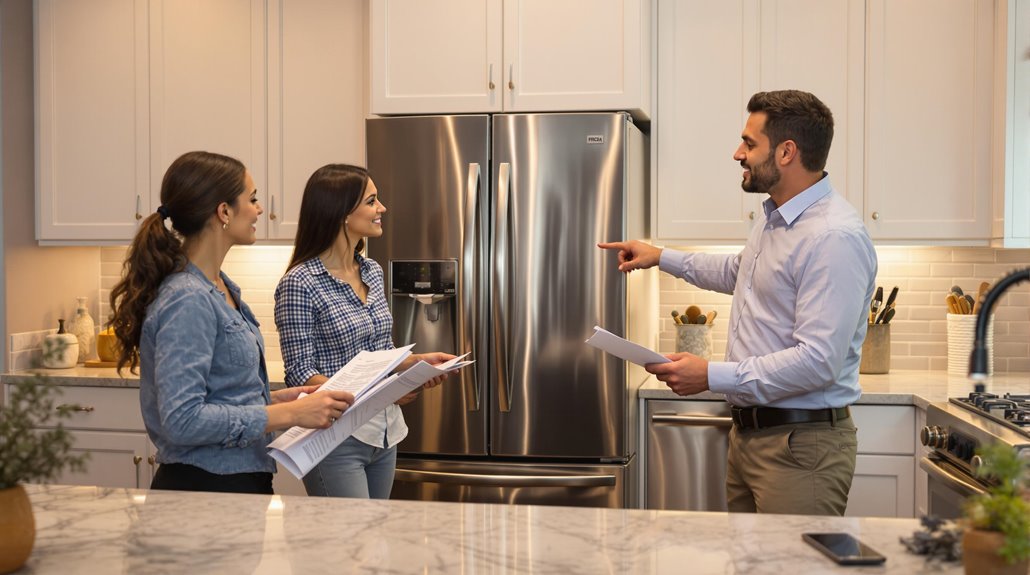
The Public Claims Adjusters Network (PCAN) stands as a nationwide organization connecting policyholders with qualified, state-licensed public adjusters who handle both residential and commercial property damage claims.
Operating in over 40 states, PCAN maintains strict standards for membership through intensive vetting and yearly audits of their adjusters' licenses and professional conduct.
Key features of PCAN include:
- Pre-vetted, verified public claims adjusters specializing in 30+ claim types
- Mandatory annual license and complaint audits for all members
- Expertise in both residential and commercial property damage claims
- Adherence to highest ethical and professional standards
- Extensive coverage across 40+ states
PCAN serves as an essential resource for homeowners insurance policyholders seeking expert assistance with personal property claims.
Their network guarantees that property owners can find reliable professionals who understand policy limits and help protect your personal valuable items through proper insurance coverage assessment and claims handling.
Frequently Asked Questions
Are Appliances Part of Personal Property Insurance?
Personal property insurance typically covers portable appliances that plug into outlets, while built-in appliances fall under dwelling coverage, subject to policy limits, deductibles, and specific covered perils.
Are Appliances Covered by Renters Insurance?
Like a protective umbrella, renters insurance typically covers appliances against damage, offering replacement cost benefits within coverage limits, though specific policy exclusions may apply when filing insurance claims.
Will Insurance Cover a Refrigerator?
Insurance typically covers refrigerator damage under personal property coverage, subject to policy exclusions and coverage limits. Claims may include appliance replacement, though maintenance-related issues and cost factors affect eligibility.
Are Appliances Considered Part of the Dwelling?
Built-in appliances are considered dwelling components, while portable ones fall under personal property coverage. Insurance policies differentiate based on installation permanence, affecting replacement costs and maintenance responsibilities.

